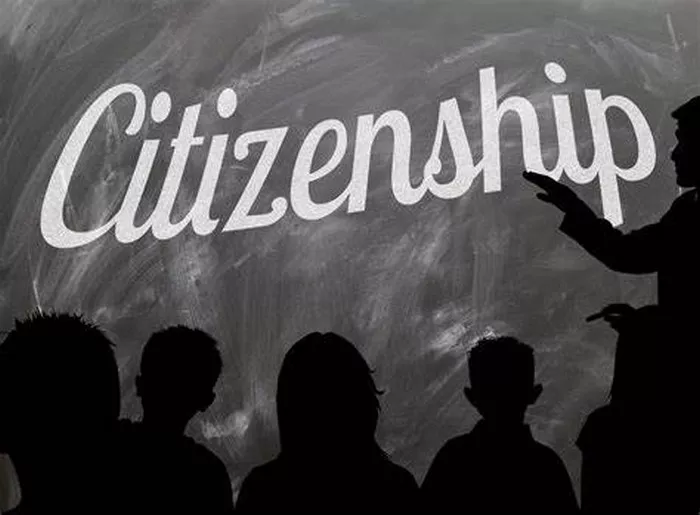Citizenship is a fundamental aspect of identity and belonging, conferring certain rights, privileges, and responsibilities upon individuals within a nation-state. However, citizenship statuses can vary widely across different countries, each with its own criteria, benefits, and limitations. In this article, we delve into the various citizenship statuses that exist worldwide, exploring their definitions, implications, and significance.
1. Citizenship by Birth
Citizenship by birth, also known as jus soli (right of the soil), is granted to individuals based on their place of birth. In countries that follow this principle, anyone born within their territorial boundaries automatically acquires citizenship, regardless of the nationality of their parents. This principle aims to ensure that individuals have a connection to the country in which they are born, irrespective of their familial origins.
Examples of countries that adhere to jus soli include the United States, Canada, and most countries in Central and South America. However, the specifics of citizenship laws may vary, such as requiring at least one parent to be a citizen or legal resident.
2. Citizenship by Descent
Citizenship by descent, or jus sanguinis (right of blood), is based on the nationality of one’s parents or ancestors. Individuals born to citizens of a particular country, regardless of their birthplace, are eligible for citizenship in that country. This principle emphasizes lineage and heritage as determinants of citizenship.
Many European countries, such as Germany, Italy, and Ireland, follow jus sanguinis. Some countries require only one parent to be a citizen, while others may have stricter criteria, such as requiring both parents to be citizens or imposing limitations on the number of generations eligible for citizenship by descent.
3. Citizenship by Naturalization
Citizenship by naturalization is granted to individuals who fulfill certain requirements set by the host country, typically including a period of lawful residency, proficiency in the country’s language and/or knowledge of its history and government, and adherence to its laws and values. Naturalization provides a pathway to citizenship for immigrants who have chosen to make a new country their permanent home.
The eligibility criteria for naturalization vary widely among countries and may be influenced by factors such as the immigrant’s age, criminal record, and financial stability. Additionally, some countries offer expedited naturalization processes for certain groups, such as spouses of citizens or individuals with exceptional skills or talents.
4. Dual Citizenship
Dual citizenship, also known as dual nationality, occurs when an individual is simultaneously recognized as a citizen of two countries. This can occur through various means, such as being born in one country while having parents who are citizens of another, acquiring citizenship through marriage or naturalization in a country that allows dual citizenship, or through treaties or agreements between countries.
Dual citizenship offers several advantages, including access to a broader range of rights and benefits, such as the ability to work, reside, and vote in both countries. However, it may also entail certain complexities and responsibilities, such as tax obligations in both countries and potential conflicts of loyalty or allegiance.
5. Citizenship by Investment
Citizenship by investment, sometimes referred to as economic citizenship or citizenship by purchase, is a relatively recent phenomenon where individuals can acquire citizenship in a foreign country by making a substantial financial investment in that country’s economy. This typically involves purchasing real estate, making a significant donation to a government fund, or investing in local businesses.
Countries that offer citizenship by investment programs often do so as a means of attracting foreign investment, stimulating economic growth, and diversifying their revenue streams. However, these programs have sparked controversy due to concerns about transparency, potential abuse, and the commodification of citizenship.
6. Stateless Persons
Statelessness refers to the condition of individuals who are not recognized as citizens by any country. Stateless persons lack the rights and protections afforded to citizens, facing numerous challenges in terms of access to education, healthcare, employment, and legal recognition. Statelessness can occur due to various factors, including discriminatory nationality laws, conflicts of nationality, and gaps in birth registration systems.
The United Nations High Commissioner for Refugees (UNHCR) estimates that millions of people worldwide are stateless, with devastating consequences for individuals and their families. Efforts to address statelessness include advocacy for legal reforms, birth registration initiatives, and the identification and protection of stateless populations.
Conclusion
Citizenship statuses are diverse and complex, reflecting the intricacies of national identity, legal frameworks, and historical contexts. While citizenship bestows rights, privileges, and responsibilities upon individuals, disparities and inequalities persist in terms of who is recognized as a citizen and who is excluded from citizenship altogether. Understanding the various citizenship statuses is essential for promoting inclusivity, equality, and social justice in an increasingly interconnected world.


